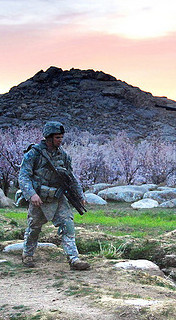Despite Presidential Legacy Goals, Obama Agrees to Slow Afghanistan Troop Drawdown
/AFGHANISTAN - In March, President Obama announced that troop levels in Afghanistan would not be reduced, despite the president's pledge to decrease the number by half. In the following weeks a flood of diplomatic engagements, press conferences and speculation by world leaders unraveled about what the bilateral relationship will look like in the coming months and years.
What has become clear is an already tense and fragile relationship has become increasingly volatile with the rise of ISIS, coupled with the lessons learned from Iraq’s draw downs. In Iraq, many think we withdrew too quickly, leaving the vulnerable Iraqi troops to fend for themselves against ISIS, who advanced quickly against the inexperienced resistance.
Despite these factors, amplified lobbying efforts by President Ashraf Ghani certainly doesn't bode well for Obama’s plan to get half of the troops remaining in Afghanistan out by the end of 2015. With these pressures accumulating for months, Obama has officially decided to slow his planned troop draw down by scratching the 50% reduction in troops he was planning for the end of 2015. Now, the plan is to keep 10,000 troops in Afghanistan through the end of 2015, when the timeline will be further evaluated and structured for 2016.
Regardless of this major decision, Obama is unyielding on his benchmark goal of ending the war in Afghanistan before his Presidency comes to an end. Therefore, while there may be 10,000 troops in Afghanistan in December, he plans to have only a few hundred troops at the U.S. Embassy in Kabul left in the country by the end of 2016. The pace of this drawdown, though, is yet to be situated.
No doubt the White House, Pentagon, CIA and others are weighing the pros and cons versus staying longer to establish peace and stability, a strong Afghan military, and a more robust response to ISIS advances – but there is the eternal reminder that this is already America’s longest war and it cannot drag on forever. And while Obama may be dogged about having troops out by the end of 2016, he may be outweighed by recommendations from senior advisers and officials in these agencies who are pushing for Americans to stay longer and lock in the progress made over the last 13-years. It remains to be seen who will win this fight.
Africa Correspondent: @JessamyNichols
LinkedIn: Jessamy Nichols
















